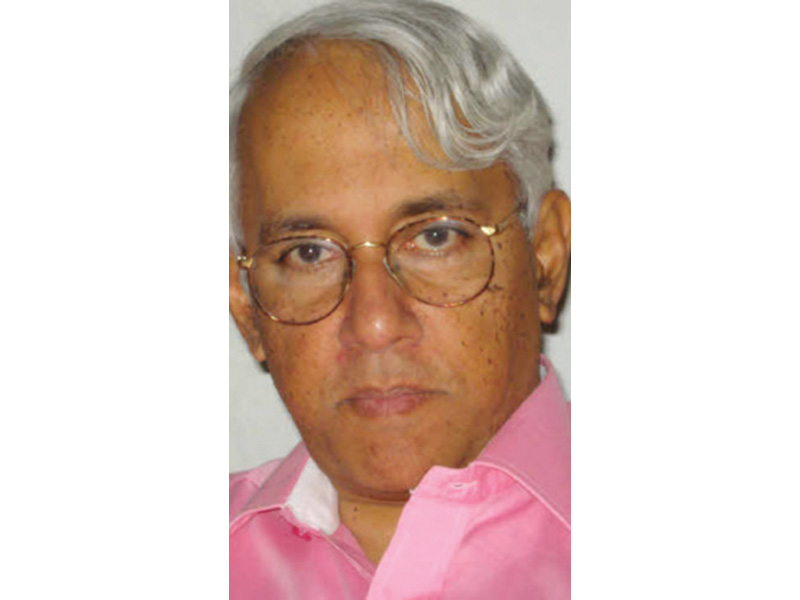Getting an EARFUL
 Suresh Subrahmanyan is a Bengaluru-based former advertising professional
Suresh Subrahmanyan is a Bengaluru-based former advertising professional
The handicap of deafness is not in the ear; it is in the mind. Actress and activist Marlee Matlin, who was deaf from early childhood.
Over the past few months, I am being warned and mildly admonished by my better half that I am probably suffering from incipient deafness; “Deaf as a doorpost” being a frequent refrain. Consistent with the stand taken by most people who are ‘accused’ of being hard of hearing, I am in stout denial mode. “What me, deaf? Why don’t you speak clearly instead of mumbling to yourself?” To which the good wife’s response is swift. “This morning, I asked you to bring down the Venetian vase from the top shelf of the kitchen cupboard. And what have I got? The medicine box. And not for the first time. We need to consult an ENT specialist.”
Anyhow, I have been successfully, if unwisely, putting off this visit to the ENT practitioner for some time now, but it seems that the sands of time are running out. The chickens are coming home to roost. The issue was precipitated a few nights ago when my wife asked me if I would like the fan to be put on at the speed of 2. I was probably half asleep as I replied, “Yes you may switch the lights off, if you wish.” The explanation that I was half asleep carried no conviction. I thought she said something about a deaf adder under her breath. Tough to pick up verbal nuances when you are just about to drop off.
It is a bit of a mystery why many of us become so coy and go into a self-denial mode when asked if there is a problem with the hearing. After saying “What was that again?” and sidling up to the person with a “Sorry, didn’t quite catch that. Those blasted Air Force jets are doing some aerial exercises what with the air show coming up and boy, you can’t even hear yourself think. You were saying?” See what I mean?
Somehow, one doesn’t seem to have this issue with other handicaps. You are quite happy to drone on about your astigmatism, rheumatism, lumbago, not to mention neuralgia, osteoporosis and lower back pain coupled with cervical spondylosis. Puts me in mind of a delightful episode from one of Wodehouse’s short stories. Major General Aylmer Bastable is in high dudgeon when one of the toffee-nosed earls at a cure spa mocks him for making a fuss over a mere bout of gout. “Snob! Thinks he’s everybody just because he’s got telangiectasis.”
All said and done, it looks as if that visit to the ENT chap is inevitable. He will try and push some new-fangled, state-of-the-art hearing device at a throwaway price, including special manufacturer’s discount, of Rs.6 lakh (‘We are giving it away really’), German technology made in China; but of course. What’s your cut, Doc? It occurred to me that I could buy a decent second-hand car with that kind of money, but I must concur with my life-partner that a second-hand car, however decent, will do nothing to improve my hearing. Assuming always that I do have a hearing problem, a point on which I believe the jury is still out.
Shakespeare’s play, Julius Caesar was prescribed as part of our school syllabus at the Senior Cambridge level. There were many memorable quotes from the play which we keep referencing from time to time in conversation and in our writings. One of the lesser-known quotes, but one that’s relevant to the topic under discussion is attributed to Caesar when he urges Mark Anthony, “Come on my right hand, for this ear is deaf.” When Caesar commands, you move swiftly to his right hand without making any snide comments about his hearing disability — if you knew what was good for you. The great man was already suffering from epilepsy or ‘the falling sickness.” Clearly, he had just the one functioning ear in an age where they had not heard of hearing aids. At Caesar’s funeral, Mark Anthony commences his speech with that immortal line, “Friends, Romans and Countrymen, lend me your ears.” There can be little doubt that the entire citizenry of Rome was all ears.
Finally, one must accept that there are degrees of deafness. If one is stone deaf, he can only be offered sympathy and sign language. In Tamil, insensitive kids employ the word damaaram, a pejorative suggesting, onomatopoeically, the sound of a loud fire-cracker going off which the poor afflicted person can barely hear. Speaking for myself, I am fully confident that my problem, if indeed there is one, is but a passing phase. I intend getting my ears dewaxed first. After which you can drop a pin, and I guarantee you I will hear it, clear as a bell.
P.S: Beethoven composed his monumental 9th Symphony, and pretty much everything else, when he was profoundly deaf. Chew on that.
(Suresh Subrahmanyan is a Bengaluru-based former advertising professional)






 Suresh Subrahmanyan is a Bengaluru-based former advertising professional
Suresh Subrahmanyan is a Bengaluru-based former advertising professional










Add comment